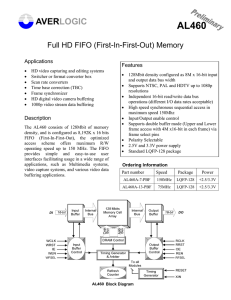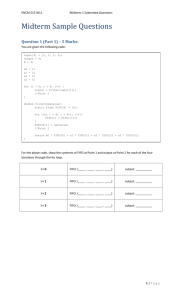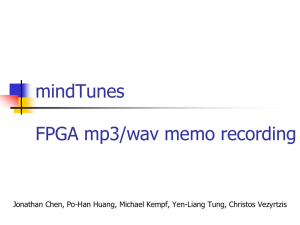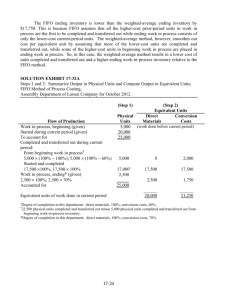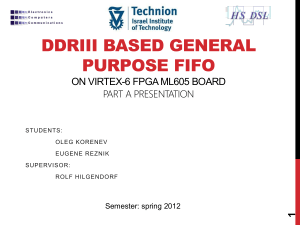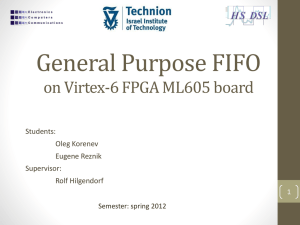IMPACT OF FLY-IN FLY OUT/ DRIVE-IN DRIVE
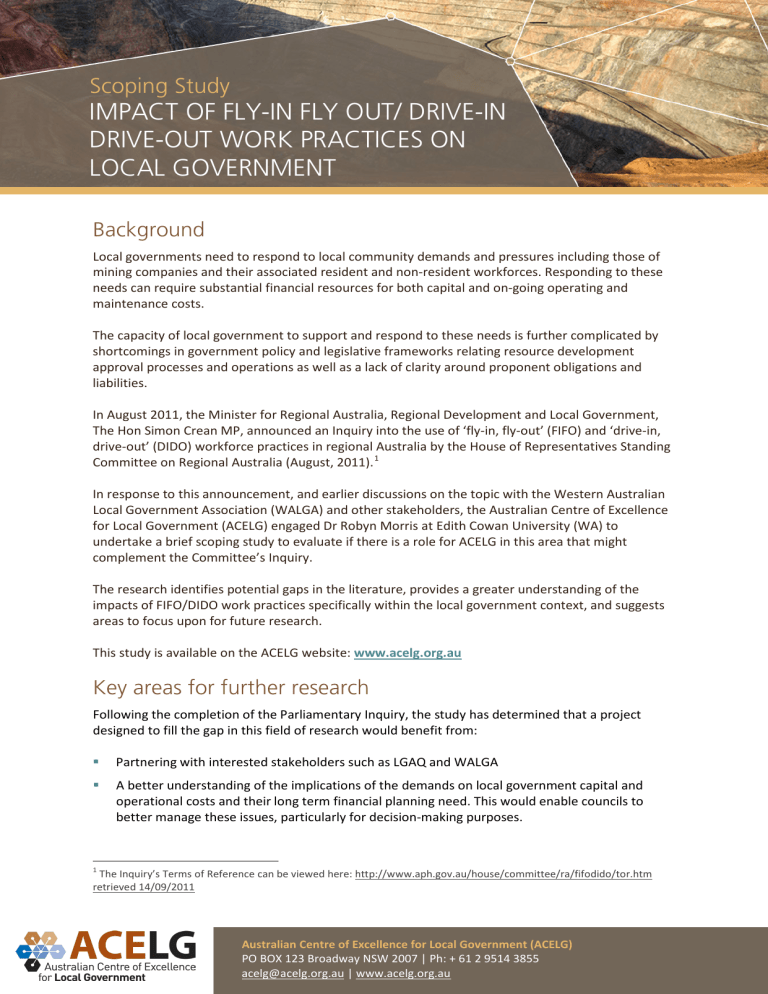
Scoping Study
IMPACT OF FLY-IN FLY OUT/ DRIVE-IN
DRIVE-OUT WORK PRACTICES ON
LOCAL GOVERNMENT
Background
Local governments need to respond to local community demands and pressures including those of mining companies and their associated resident and non-resident workforces. Responding to these needs can require substantial financial resources for both capital and on-going operating and maintenance costs.
The capacity of local government to support and respond to these needs is further complicated by shortcomings in government policy and legislative frameworks relating resource development approval processes and operations as well as a lack of clarity around proponent obligations and liabilities.
In August 2011, the Minister for Regional Australia, Regional Development and Local Government,
The Hon Simon Crean MP, announced an Inquiry into the use of ‘fly-in, fly-out’ (FIFO) and ‘drive-in, drive-out’ (DIDO) workforce practices in regional Australia by the House of Representatives Standing
Committee on Regional Australia (August, 2011).
In response to this announcement, and earlier discussions on the topic with the Western Australian
Local Government Association (WALGA) and other stakeholders, the Australian Centre of Excellence for Local Government (ACELG) engaged Dr Robyn Morris at Edith Cowan University (WA) to undertake a brief scoping study to evaluate if there is a role for ACELG in this area that might complement the Committee’s Inquiry.
The research identifies potential gaps in the literature, provides a greater understanding of the impacts of FIFO/DIDO work practices specifically within the local government context, and suggests areas to focus upon for future research.
This study is available on the ACELG website: www.acelg.org.au
Key areas for further research
Following the completion of the Parliamentary Inquiry, the study has determined that a project designed to fill the gap in this field of research would benefit from:
Partnering with interested stakeholders such as LGAQ and WALGA
A better understanding of the implications of the demands on local government capital and operational costs and their long term financial planning need. This would enable councils to better manage these issues, particularly for decision-making purposes.
1 The Inquiry’s Terms of Reference can be viewed here: http://www.aph.gov.au/house/committee/ra/fifodido/tor.htm retrieved 14/09/2011
Australian Centre of Excellence for Local Government (ACELG)
PO BOX 123 Broadway NSW 2007 | Ph: + 61 2 9514 3855 acelg@acelg.org.au | www.acelg.org.au
A staged research design. In time, this would allow the following to be examined -
• the impact on ‘host’ resource-based community councils, as these typically appear to be most directly and adversely affected by FIFO work practices
• the effects on councils adjoining mining areas that provide ‘home’ communities for FIFO workforces, as well as adjoining councils that are experiencing a population decline as they are not transport hubs for FIFO workforces; and
• the impact of FIFO work practices on the ‘sustainability’ and ‘liveability’ of communities in mining regions.
Next steps
The study has revealed that the research required on the impact on local governments by FIFO work practices is extensive, complex and may not be easily quantified. Future research on the topic might begin with a focus on ‘host’ community councils. This could include the following aspects:
Direct impacts of FIFO operations on local government infrastructure, services and facilities
Funding model options for compensating resource based community councils for any deficit in funding for added investment and/or operational costs resulting from increased demand on local government services and/or infrastructure by FIFO reliant mining activities.
Comparison of the costs to local government of supporting an increased population under different FIFO scenarios - for example 100% FIFO versus a 100% resident workforce or other alternatives.
Indirect impacts of FIFO operations on local government operations.
Research approach
This study was undertaken in several steps:
A literature review to complement the work undertaken by WALGA (2010);
A review of local government submissions to the Inquiry;
Discussions with local government sector representatives on the FIFO issue and known impacts, including WALGA, the Local Government Association of Queensland (LGAQ) and the Pilbara
Regional Council;
Input from members of ACELG’s rural-remote and Indigenous local government reference group; and,
Input from Queensland local governments in resource communities about key areas that any future research on the topic might address.
Although views on broader issues relating to community services such as health, education, policing and others are included in the study, the provision of these services falls outside the nondiscretionary responsibilities of local government. For this reason, they have not been included as part of the research scope.
Further Information:
To download a copy of the report, go to www.acelg.org.au.
Your feedback and comments on this study are welcomed by ACELG. Please contact Melissa Gibbs, Program
Manager, Rural-Remote and Indigenous Local Government Program, melissa.gibbs@acelg.org.au
Australian Centre of Excellence for Local Government (ACELG)
PO BOX 123 Broadway NSW 2007 | Ph: + 61 2 9514 3855 acelg@acelg.org.au | www.acelg.org.au
